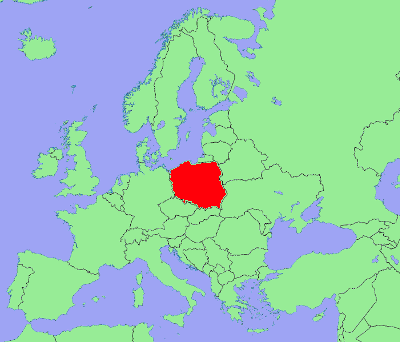
Circle the area on this map

D. Germany is west of Poland; the Czech Republic is to the southwest; Slovakia is to the south; Ukraine, Belarus and Lithuania are to the east; and the Russian enclave of Kaliningrad and the Baltic Sea are to the north of Poland. Thousands of Poles joined the underground to fight the occupying Nazis, but some others aided the persecution of the Jews.
D. An annual gathering of Europe’s far-right movements marched through Warsaw with banners and chants of “white Europe” and “pure blood.” Some Polish officials defended the event as a simple independence day rally. Poland’s nationalist ruling party has been campaigning to stop people from “slandering the good name of Poland.”
D. Many of the refugees were fleeing fighting in Syria, Iraq, Afghanistan, Yemen, Somalia, Mali and other nations. The UN said the number of forcibly displaced people worldwide reached 59.5 million at the end of 2014, the highest level since World War II. Most of those refugees remained in their own or neighboring nations.
C. With more than 1.7 million people applying for asylum from 2008 through 2016, Germany was by far the most welcoming of the European nations. The largest group of people seeking asylum in Europe were from Syria.